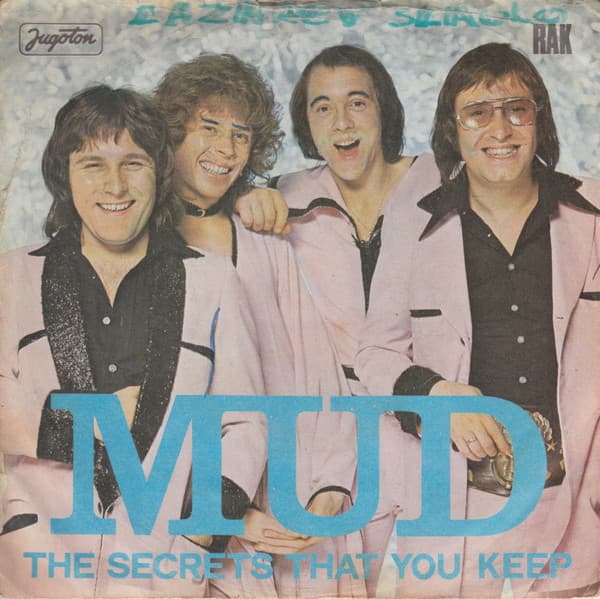
“L’L’Lucy”: A Farewell to Innocence and a Rock ‘n’ Roll Warning
Step back with me, if you will, to the mid-1970s. The air still hummed with the afterglow of glam rock, but a tougher, more assertive edge was starting to creep into the pop landscape. And right there, at the cusp of that shift, stood Mud. They were the architects of stomping, infectious singles, masters of that irresistible, slightly cheeky sound. Tonight, we’re revisiting a track that marked a subtle but significant turning point for the band: the driving, no-nonsense “L’L’Lucy.”
Released in September 1975, “L’L’Lucy” was a vital single for Mud, and it proved their enduring appeal. While it might not have reached the absolute peak of the charts like their earlier number ones such as “Tiger Feet” or “Lonely This Christmas,” it nonetheless stormed into the top echelon, securing a respectable number 10 position on the UK Singles Chart. Across Europe, its reception was even more fervent; it was a bona fide smash, soaring to number 1 in Belgium and the Netherlands, and achieving strong chart showings in Germany, Finland, and Ireland. It was featured on their album Use Your Imagination, which itself was a testament to the band’s willingness to experiment beyond their established sound.
The story behind “L’L’Lucy” carries a unique weight. By 1975, Mud had enjoyed a phenomenal run of success under the tutelage of the legendary songwriting and production team of Mike Chapman and Nicky Chinn at RAK Records. Their distinctive “Chinnichap” sound had turned the band into household names. However, like many successful collaborations, a time comes for artists to spread their wings. “L’L’Lucy” was one of the very first singles Mud released after parting ways with Chapman and Chinn, venturing out with their own compositions and working with new producers. The song was written by Mud members Rob Davis (guitar) and Ray Stiles (bass), proving that the band possessed considerable songwriting talent of their own. It was a declaration of independence, a bold statement that they could continue their hit-making ways on their own terms.
Musically, “L’L’Lucy” retained much of Mud‘s signature energy – the driving beat, Les Gray’s distinctive vocals, and the powerful, almost relentless rhythm section. Yet, there’s a certain grit to it, a slightly darker undertone than some of their earlier, more overtly joyful hits. This was Mud flexing their rock ‘n’ roll muscles, leaning into a more robust sound that hinted at the changes brewing in the music world.
The meaning of “L’L’Lucy” delves into the complexities of a challenging relationship, a theme a little more mature than the straightforward exuberance of some of their prior work. The lyrics paint a picture of a woman, Lucy, who “lives just for kicks” and “does what she wants ’til she’s learned all the tricks.” The narrator, clearly exasperated, warns her that her reckless ways will lead to loneliness: “Her time will come when she’s out on her own / She won’t have me to depend on.” It’s a narrative of tough love, of a relationship reaching its breaking point, where the narrator declares, “No messing’ or you’re out that door / I mean and I meant it then / Ain’t gonna take you woman back again.” This isn’t the frivolous fun of “Tiger Feet“; this is a weary, yet firm, declaration of self-preservation. For many of us who were navigating our own turbulent youthful romances, the lyrics offered a relatable, albeit slightly cautionary, tale.
Looking back, “L’L’Lucy” stands as a testament to Mud‘s adaptability and talent. It was a crucial transitional piece, showcasing their ability to evolve while retaining the core dynamism that made them so appealing. It wasn’t just another glam-rock stomper; it was a confident stride into a slightly heavier, more assertive rock sound, proving that Mud was more than just a passing pop sensation. It evokes memories of a time when singles were king, when the sheer power of a well-crafted pop-rock song could dominate the airwaves and fill dance floors, even as the landscape of popular music was beginning to shift under our feet. It reminds us that even within the seemingly innocent world of ’70s pop, there were undercurrents of real-life dramas playing out, set to a thumping, unforgettable beat.